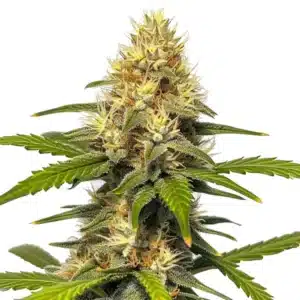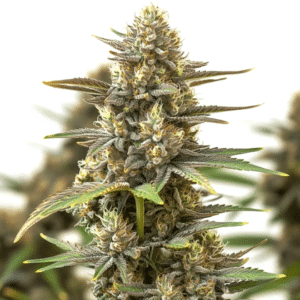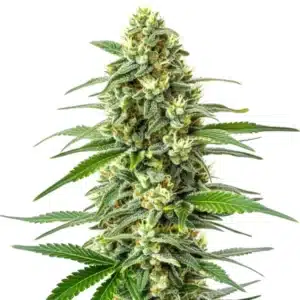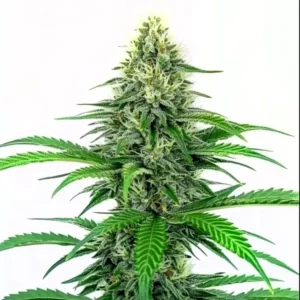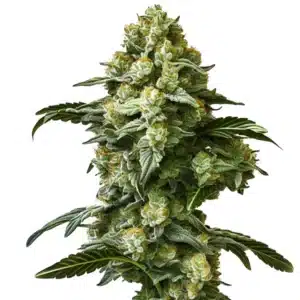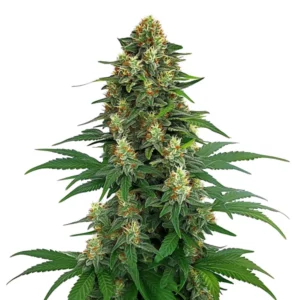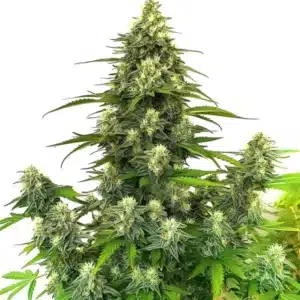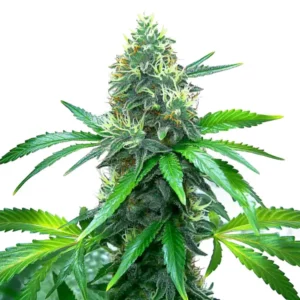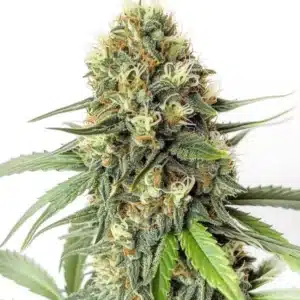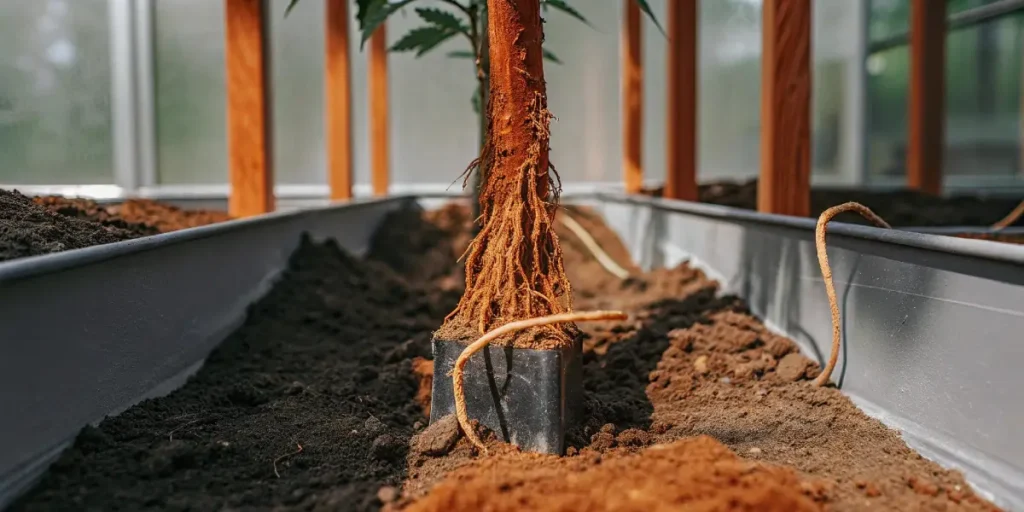
Root Secretion Cannabis: A Closer Look at Plant Interactions
Root secretion cannabis involves a fascinating interplay between the plant and the soil around it. When we talk about root exudates cannabis cultivation, we’re diving into how cannabis plants release specific compounds through their roots. These compounds form a dynamic environment that can significantly affect plant growth and health.
For those new to growing or considering it, knowing the cannabis rhizosphere interactions is key. The rhizosphere is the narrow region of soil directly influenced by root secretions. In cannabis, this area teems with life, influencing everything from nutrient uptake to disease resistance. It’s like a bustling city beneath the soil, where roots are the architects and engineers.
Recommended Strains
Banana Split
|
|
THC | 15% - 20% (Medium) |
|
|
Type | Feminized |
|
|
Yield | High |
|
|
Phenotype | 40% Indica / 60% Sativa |
Berry Z OG
|
|
THC | 15% - 19% (Medium) |
|
|
Type | Feminized |
|
|
Yield | High |
|
|
Phenotype | 60% Indica / 40% Sativa |
By choosing strains like Banana OG from Blimburn Seeds, growers can optimize these interactions. Banana OG is renowned for its robust root system, which is known to enhance root secretion compounds in cannabis. These compounds improve nutrient absorption, making it a favorite among seasoned cultivators.
How Root Secretion Benefits Cannabis Growth
Root secretion cannabis benefits are vast, providing a competitive edge for plants in various environments. By releasing a wide array of chemicals, cannabis roots can alter the microbial community in the soil, favoring beneficial bacteria and fungi. This process is crucial for nutrient cycling, a natural process that breaks down organic matter into usable nutrients.
In cannabis cultivation, knowing these interactions can greatly enhance yields. For instance, growers of the popular GG4 Auto often report vigorous plant growth. This strain’s root exudates foster a rich microbial environment, optimizing nutrient availability and boosting plant health.
Moreover, the benefits of root secretion cannabis extend to plant defense mechanisms. By encouraging the proliferation of beneficial microbes, the plant is better protected against soil-borne pathogens. This natural defense system reduces the need for chemical interventions, leading to a more sustainable cultivation practice.
Another key advantage of root secretion cannabis is the improvement in soil structure. The organic acids and other compounds released by the roots can enhance soil aeration and water retention, creating a more hospitable environment for root development. This also facilitates the plant’s access to water and nutrients, further enhancing growth and yield.
Promos & Deals
Root Secretion Compounds and Their Functions
Cannabis roots secrete various compounds, including sugars, amino acids, and organic acids. These compounds not only nourish beneficial microbes but also play a role in protecting the plant from pathogens. For example, some acids can lower soil pH, making it less favorable for harmful organisms.
Such interactions are part of what makes strains like Tangie appealing. Known for its vibrant growth and resilience, Tangie benefits from the protective compounds its roots secrete. These compounds shield it from soil-borne diseases, ensuring a healthy, bountiful harvest.
Knowing the variety of root secretion compounds in cannabis is crucial for tailoring cultivation practices. Different compounds can have distinct effects on the soil environment, influencing microbial diversity and nutrient dynamics. This complexity allows growers to experiment with different strains and cultivation techniques to achieve optimal results.
The function of these compounds extends beyond immediate plant health. They contribute to the long-term vitality of the soil by enhancing the cannabis root microbiome effects. A thriving microbiome not only supports current plant growth but also prepares the soil for future cultivation, ensuring continued success over multiple growing cycles.
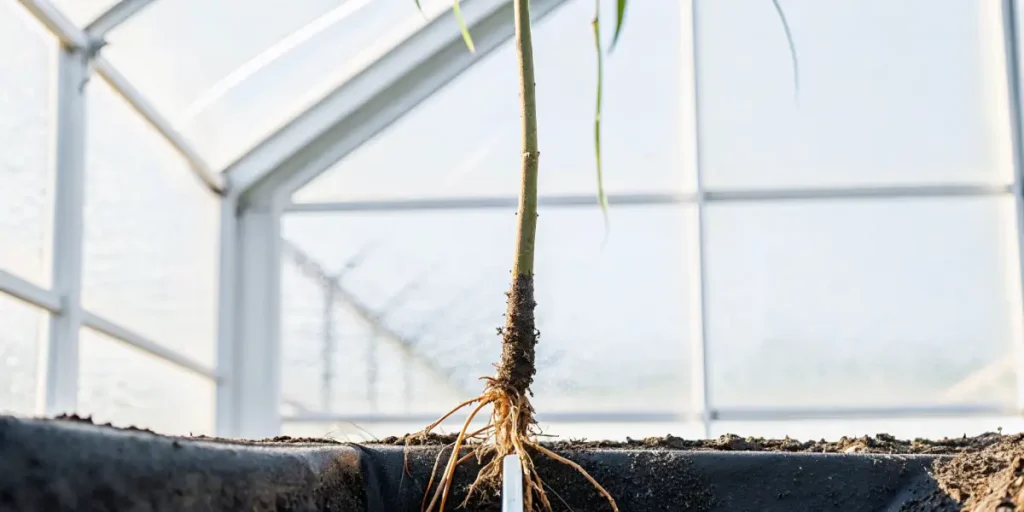
Practical Tips for Enhancing Root Secretion
To maximize root secretion cannabis benefits, consider using organic soil amendments. Compost, for example, is rich in organic matter that stimulates microbial activity. This activity, in turn, enhances root exudation, creating a supportive environment for cannabis plants.
Another practical approach is to maintain optimal soil moisture levels. Overly dry or waterlogged conditions can stress the plant, reducing the efficiency of root secretions. Striking the right balance is key to promoting healthy root and soil interactions.
Integrating cover crops or green manures can also support root secretion cannabis benefits. These plants add organic matter to the soil, improving its structure and fertility. As they decompose, they release nutrients that enhance the cannabis rhizosphere interactions, boosting overall plant health.
Additionally, monitoring soil pH and adjusting it if necessary can optimize the environment for root exudates cannabis cultivation. A balanced pH level supports microbial diversity and activity, ensuring that the beneficial effects of root secretions are fully realized.
FAQs
What are root exudates and why are they important in cannabis cultivation?
Root exudates are substances released by plant roots into the surrounding soil. In cannabis cultivation, these exudates play a critical role in shaping the soil microbiome, the community of microorganisms living in the soil. This interaction is essential for nutrient cycling and disease prevention.
By fostering a healthy microbial environment, root exudates improve nutrient uptake, leading to stronger, more resilient cannabis plants. This ultimately results in higher yields and better-quality crops, making root exudates a vital aspect of successful cannabis cultivation.
The importance of root exudates in cannabis cultivation cannot be overstated. They are the foundation of a thriving rhizosphere, where complex interactions between roots and microbes take place. Knowing these interactions allows growers to optimize conditions for enhanced plant growth and disease resistance.
Furthermore, root exudates act as signaling molecules, facilitating communication between the plant and its environment. This signaling can trigger beneficial responses, such as the activation of plant defense mechanisms, providing an additional layer of protection against potential threats.
How do cannabis root secretion compounds affect plant health?
Cannabis root secretion compounds include a variety of chemicals, such as sugars and organic acids, that promote beneficial microbial growth. These compounds enhance the plant’s ability to absorb nutrients, directly impacting its health and vigor.
Moreover, these secretions can inhibit the growth of harmful pathogens, offering a natural form of pest and disease control. By protecting the plant in this way, root secretions help ensure a robust and healthy cannabis crop.
The impact of root secretion compounds in cannabis on plant health extends to stress resilience. These compounds can help the plant cope with abiotic stresses such as drought or nutrient deficiency, further supporting robust growth and development.
Additionally, the continuous release of root secretion compounds fosters a dynamic and balanced soil ecosystem. This balance is crucial for minimizing the impact of soil-borne diseases and pests, reducing the need for external inputs and promoting sustainable cultivation practices.
Can root secretions be influenced by cannabis strain selection?
Yes, different cannabis strains have unique root secretion profiles. For example, some strains may secrete higher levels of sugars, while others may produce more organic acids. These differences can influence the microbial community in the soil and affect overall plant performance.
Choosing strains like Banana OG, GG4 Auto, or Tangie from Blimburn Seeds allows growers to take advantage of these unique secretion profiles, optimizing growth conditions and improving crop outcomes.
The choice of cannabis strain is a strategic decision that can significantly influence root secretion cannabis dynamics. Each strain’s unique profile can be leveraged to address specific cultivation challenges, from nutrient management to pest control.
By knowing the root secretion profiles of different strains, growers can tailor their cultivation practices to enhance the cannabis root microbiome effects. This tailored approach can lead to improved soil health and increased plant productivity, providing a competitive edge in the market.
What role does the cannabis rhizosphere play in plant growth?
The cannabis rhizosphere is the zone of soil surrounding the plant’s roots where complex interactions occur. It is a hub of microbial activity, fueled by root secretions that nourish beneficial bacteria and fungi. These microorganisms play a crucial role in breaking down organic matter and facilitating nutrient uptake.
Knowing the dynamics within the rhizosphere can help growers enhance plant growth. By managing soil conditions and selecting the right cannabis strains, growers can cultivate a thriving rhizosphere that supports healthy plant development and maximizes yield.
The cannabis rhizosphere interactions are essential for maintaining soil fertility and health. The interplay between roots and microbes ensures a continuous supply of nutrients, promoting sustained plant growth and development throughout the cultivation cycle.
Furthermore, the rhizosphere acts as a buffer against environmental fluctuations. By stabilizing soil conditions, it helps mitigate the effects of stressors such as temperature changes or water scarcity, ensuring consistent plant performance even under challenging conditions.
How can growers optimize root secretion in their cannabis plants?
To optimize root secretion, growers can focus on creating a favorable soil environment. This includes using organic amendments like compost and maintaining proper soil moisture levels. These practices encourage a healthy microbial community, enhancing root exudation and promoting plant health.
Additionally, experimenting with different cannabis strains and companion plants can introduce beneficial diversity to the soil microbiome. By leveraging the unique properties of strains like Banana OG, GG Auto, and Tangie, growers can achieve optimal conditions for root secretion and plant growth.
Optimizing root secretion cannabis benefits involves a holistic approach to soil management. Regular soil testing can help identify nutrient deficiencies or imbalances, allowing growers to make informed decisions about amendments and fertilization strategies.
Furthermore, employing sustainable cultivation techniques such as crop rotation and reduced tillage can preserve soil structure and enhance root secretion cannabis interactions. These practices contribute to a resilient and productive growing environment, maximizing the potential of each cannabis crop.


